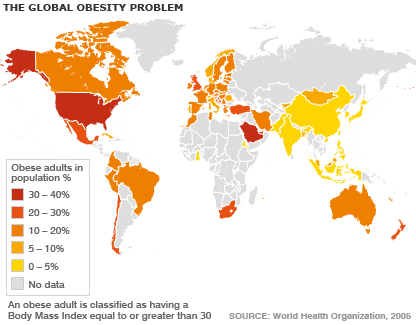Prebiotics, the non-digestible fibres which feed the body's good bacteria, could help to rectify dysbiosis, a common condition amongst overweight and obese people.
A review published in the British Journal of Nutrition agreed with previous findings that obese and overweight individuals often have dysbiosis - that is, an imbalance in the gut of friendly bacteria (probiotics) and harmful bacteria (pathogens). Various studies in the past have presented this finding (see Antibiotic exposure in early life linked with obesity). Working with the assumption that dysbiosis can contribute to obesity, the researchers set out to ask if the gut microbiota can be changed in order to improve host health, and indeed weight.
The researchers, led by Nathalie M. Delzenne, found that prebiotics did have a role to play. The review suggested that the change in microbiota brought about by the prebiotics was much greater than a simple change in levels of Bifidobacteria. They added, 'Highly fermentable carbohydrates, such as prebiotics, are able to counteract several metabolic alterations linked to obesity, including hyperglycaemia, inflammation and hepatic steatosis, at least in animal models.' It was also suggested that changes in the integrity of the gut barrier could be positively influencing the host health.

This Global Obesity Map from BBC News shows that obesity is a problem in a growing amount of countries. Read more about gut flora & weight.
The researchers quite rightly stated that prebiotics can be found in certain whole grain cereals. We would add that there is a variety of foods which can provide prebiotic benefits - but best to find out which foods contain prebiotic fibres in particular - as these are not the same as 'general' fibres.
Natural sources of prebiotic fibres:
- Jerusalem Artichokes
- Onions
- Soybeans
- Leeks
- Garlic
- Unrefined Barley
Find out more about probiotics & prebiotics, and the difference between the two, on the Probiotics Learning Lab.
References
- Delzenne, N., Neyrinck, A. and Cani, P., (2013). Gut microbiota and metabolic disorders: how prebiotic can work?. British Journal of Nutrition, 109(S2), pp.S81-S85.
Popular Articles
View all Weight Management articles-
Weight Management13 Feb 2024


